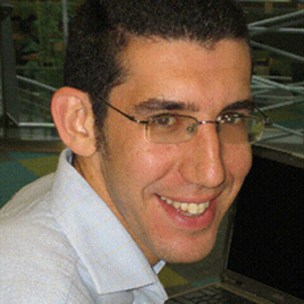‘I can work across a variety of exciting fields’
Job Title: Head of Operational Research
Organisation: TUI Travel
Qualifications: BSc Mathematics (Oxford), MSc Operational Research (Warwick)
Aaron Sugarman is the Head of Operational Research at TUI Travel in Luton. His team uses mathematical techniques to find working models and solutions of various organisational problems within the company.
What is your background in Mathematics?
I always liked Maths at school but for a while I thought it would be Chemistry which I went on to study at university. I realised that I was enjoying solving chemical equations more than the other material and my passion for Maths grew from there. I did my undergraduate degree in Mathematics from Oxford and then I did a Masters degree in Operational Research from the University of Warwick.
Can you tell me about your job history?
During my time at Warwick, I completed a three month placement at Natwest where I was looking at how applicants for new accounts are chosen based on past credit. I went on to work for a management consultancy company for two years. During that time I did a variety of interesting work. This included scheduling production for the Ford Mondeo, looking at the effectiveness of the supply chain at Marks & Spencer and also the effectiveness of the Trainline call centre.
What are some examples of typical tasks in your job?
Operational Research is basically applying analytical techniques to solve organisational problems such as scheduling, optimisation etc. and looking at efficiency of various procedures. One typical task here is forecasting holiday demand. In order to do this, we look at trends in historical and recent data across different variables (such as the season of the year). We then carry out an optimisation of demand against capacity. This leads us to the price which we should charge for the holiday which will be best for the company in terms of profit.
Has your perception of Mathematics changed in moving from an education atmosphere to the world of work?
I think one of the most important things to learn quickly in my job is being able to decide what is important and what is not and working to a deadline. There is always a new challenge and a constant supply of fresh problems which require new models to be developed. With Operational Research you are not stuck within one field and that keeps the job varied and exciting.
What skills do you use in your job?
I think that the most important skills required are problem solving ability and communication skills. In terms of problem solving, it is important to be able to clarify objectives, understand a problem and model the factors involved. Equally, it is important that you are able to communicate results and make others understand the ideas.
What are some of your hobbies in your spare time?
I did like rugby when I was younger but lately I have been playing a lot of five-a-side football. I also have a six month old son who keeps me pretty busy!
Many universities offer modules and courses in the Mathematics behind Aaron’s work. These will typically come under the heading of ‘Operational Research’ or ‘Optimisation’
RELEVANT CLASSROOM MATHS: Statistics, Probability, Decision Maths
To find out more about the Nuffield Foundation and Nuffield Science Bursaries visit the websit






